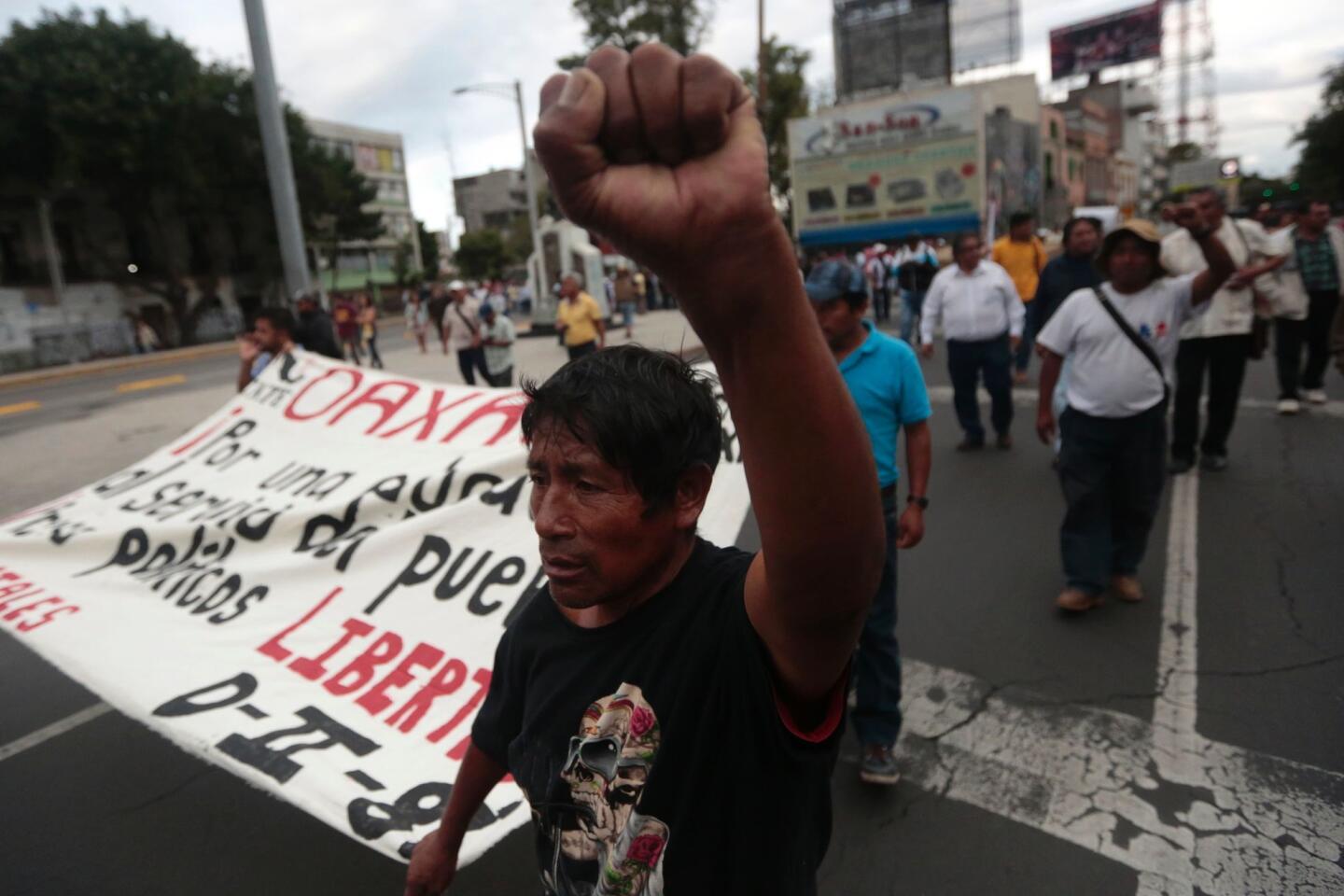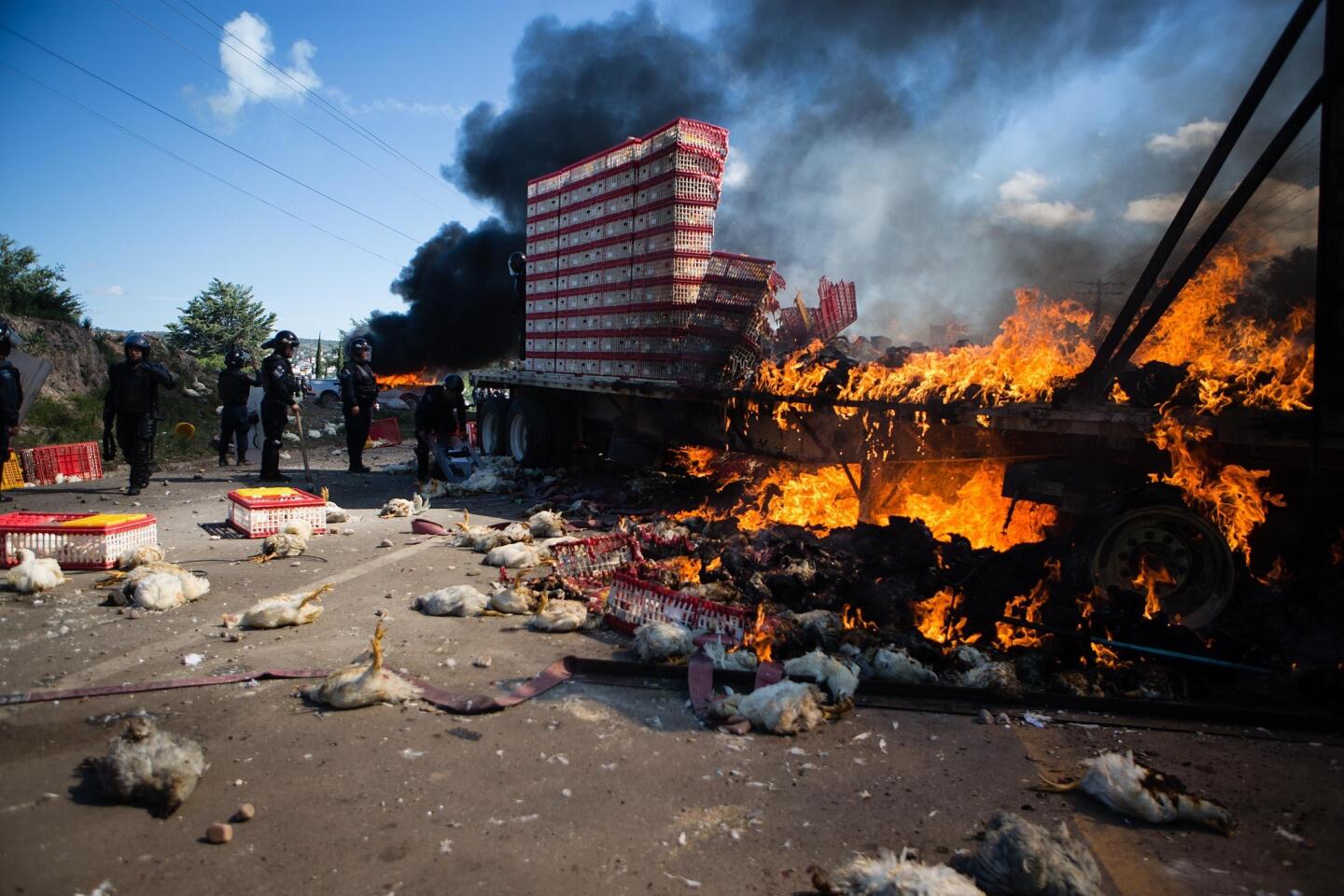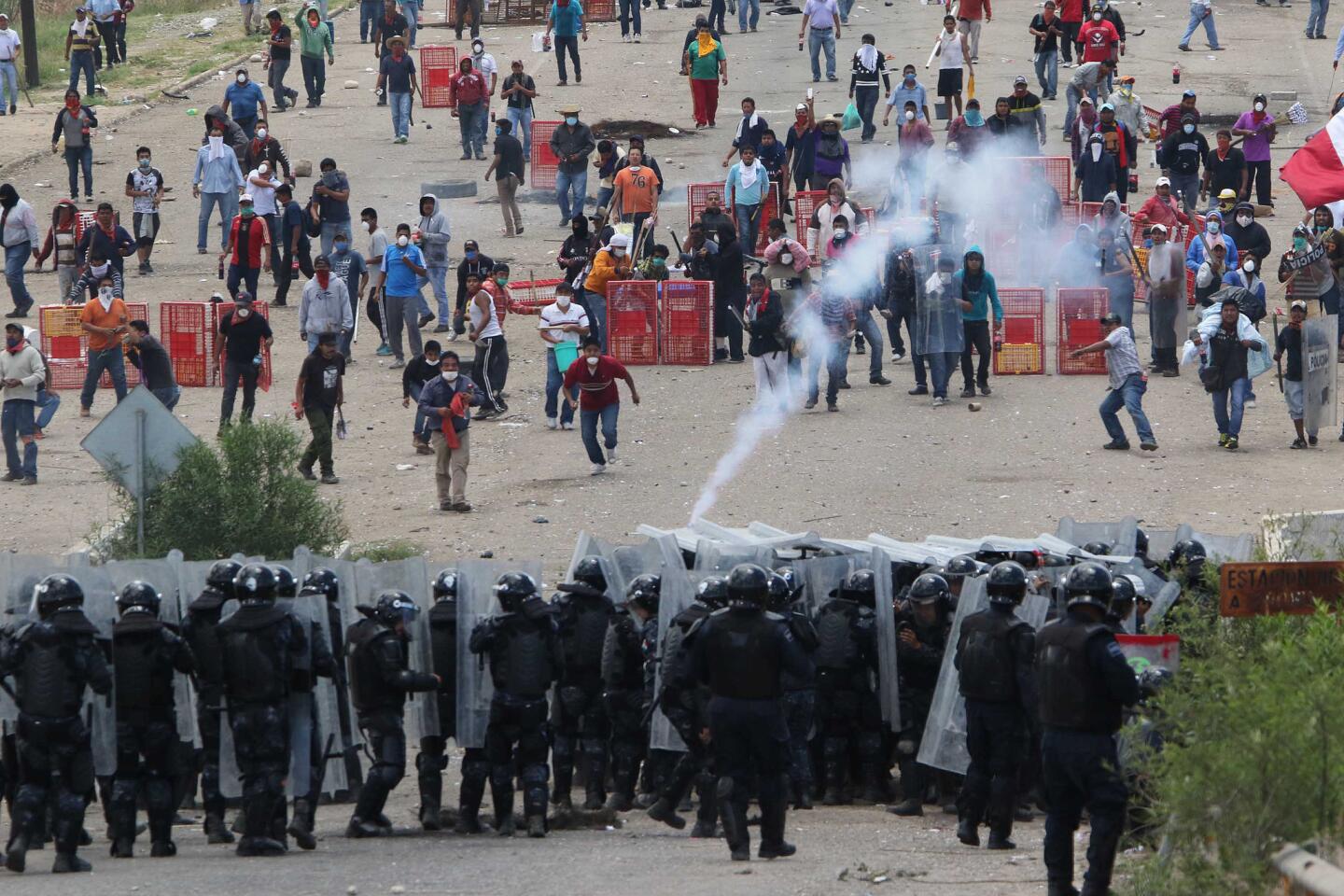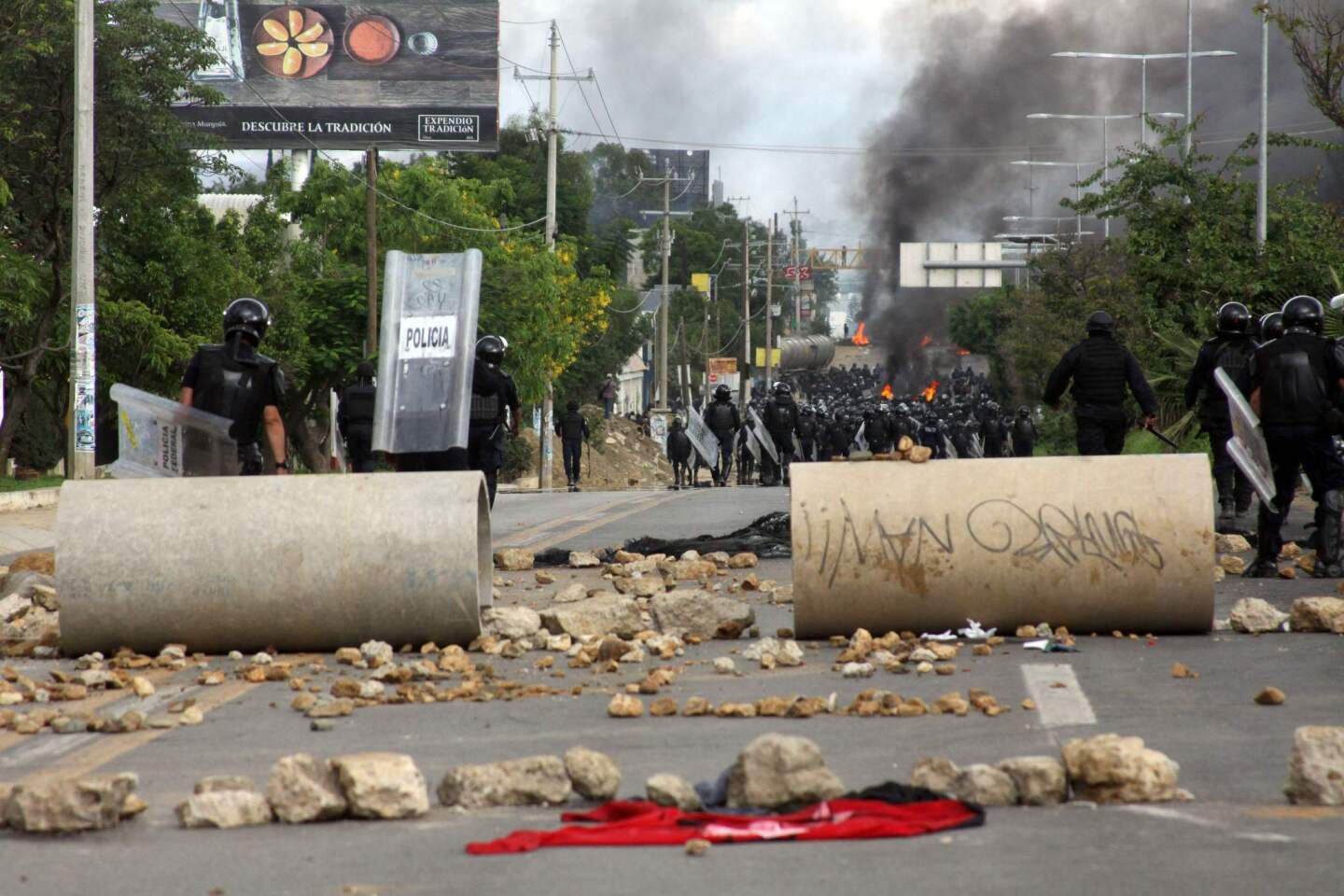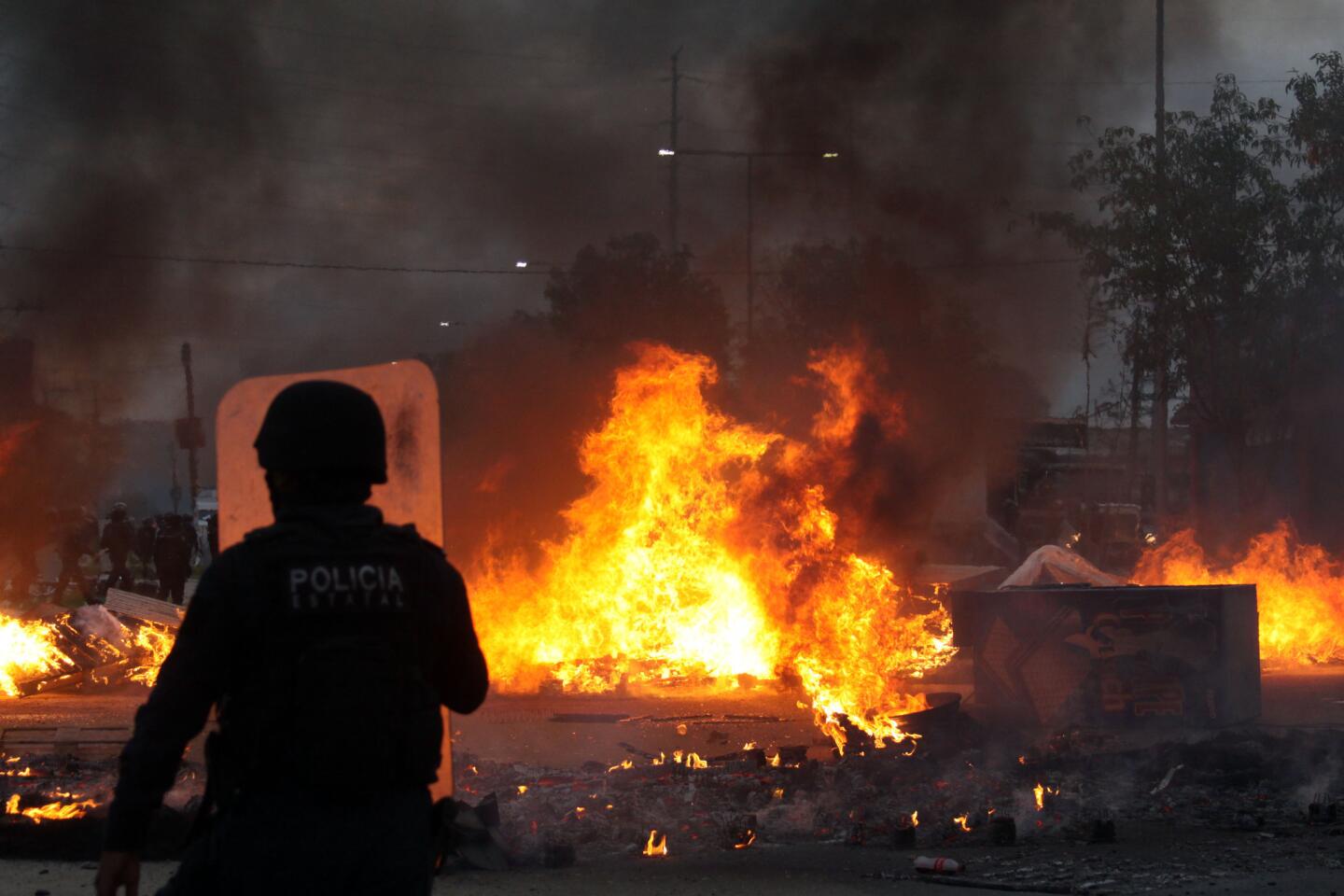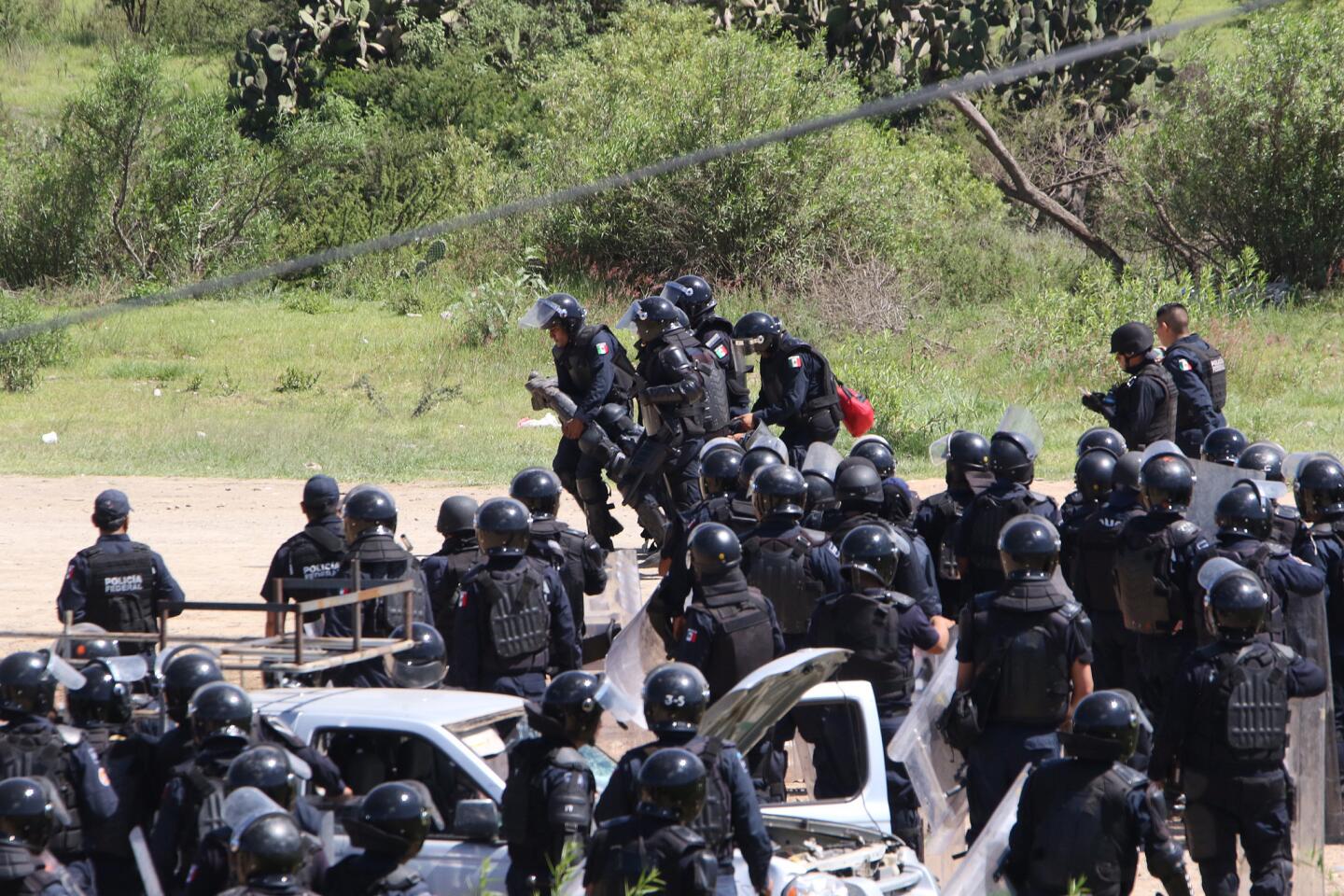6 die in violent clashes between police and teachers union in Mexico
- Share via
Reporting from OAXACA, Mexico — Violent clashes in the southern state of Oaxaca between police and members of a teachers union resulted in six civilian deaths and more than 100 injuries on Sunday, recalling the extended standoff between unionized teachers and police a decade ago that crippled the state.
The protests center on sweeping education reforms, heralded by President Enrique Peña Nieto, which require the testing of teachers in an effort to improve the country’s abysmal public education system. Oaxaca’s branch of the National Coordinator of Education Workers, or CNTE, clashed with police after union leaders were arrested on money laundering and other charges last week.
On Monday, Peña Nieto said he regrets the loss of human life and pledged to punish the responsible parties.
“I’ve given instructions so that, within the framework of the law, the necessary actions will be taken to resolve the conflict,” he said via Twitter.
See the most-read stories in World News this hour >>
Four hundred federal police and 200 state police were sent to remove a roadblock on Sunday morning in Nochixtlan, north of Oaxaca City, that had been set up on a highway by protesters, according to the state’s outgoing governor, Gabino Cue Monteagudo.
Monteagudo said that events turned violent when protesters captured five federal police officers and a rescue effort began. Protesters threw rocks and Molotov cocktails and burned vehicles, and teachers have set up an encampment in Oaxaca City’s main square, the Associated Press reported. Oaxaca has long been known as a tourist haven for lovers of food, art and architecture. It’s also home to 16 indigenous groups and a long and complex tradition of social movement. Sunday’s eruption is just the latest chapter in a conflict between the federal government and a group of highly organized teachers.
“I suspect this confrontation is about more than education reform,” said professor Lynn Stephen, director of the Center for Latino/a and Latin American Studies at the University of Oregon. “It’s about something much more profound: the poverty and growing inequality in the country, and the impunity.”
Stephen is the author of “We Are the Face of Oaxaca: Testimony and Social Movements,” featuring interviews with many of the members of the teachers union that led a six-month standoff with police in 2006.
In the poor southern region where Oaxaca is located, teachers are tasked with the daily challenge of providing shelter and food for their students, along with the mandate to boost test scores and improve reading comprehension. There teachers quite literally must build the schools in which they work and then find furniture to fill their classrooms. Students arrive at school barefoot, ache with intestinal parasites, and learn native languages before Spanish.
Critics of the union movement say teachers are playing the victim in order to mask widespread corruption within their ranks. The tests are threatening to those filling teaching positions who have never had training and wouldn’t be able to pass, said professor Francisco Gil Villegas, who teaches social science at the College of Mexico in Mexico City.
“Those political movements paid with political favors, giving jobs to people who were just not qualified at all to be teachers,” Gil Villegas said. “They are violent political protesters, many of them.”
The June 12 arrest of union leader Ruben Nuñez, secretary general of Oaxaca’s branch of the CNTE, on money laundering charges, and the recent election of a new governor for the state who supports the education reforms, have added to tensions between the teachers union and authorities, Gil Villegas said. Alejandro Murat, who was elected this month as governor, is a member of Peña Nieto’s party, the Institutional Revolutionary Party, or PRI.
“The electoral outcome was proof that [unionized teachers] are losing popular sympathy,” Gil Villegas said. “They have a moral deficit in their own movement.”
Edith Santibañez, a representative of the union, said that none of the members at the roadblock were armed and that the Molotov cocktails were thrown by protesters who had infiltrated the crowd.
“We want to make it clear that it was not us, it was people who want to destabilize our struggle,” Santibañez said. “We deny attacking police. Instead, the police attacked us with guns and shot at people when we’re exercising our right to protest.”
MORE NEWS FROM AROUND THE WORLD
Why the ‘Brexit’ idea is shaking up markets worldwide
Tens of thousands of Japanese protesters oppose U.S. troops in Okinawa
Tillman is a special correspondent. Cecilia Sanchez in Mexico City contributed to this report.
UPDATES:
6:46 p.m.: This article was updated throughout.
This article originally published at 8:58 a.m.
More to Read
Sign up for Essential California
The most important California stories and recommendations in your inbox every morning.
You may occasionally receive promotional content from the Los Angeles Times.
